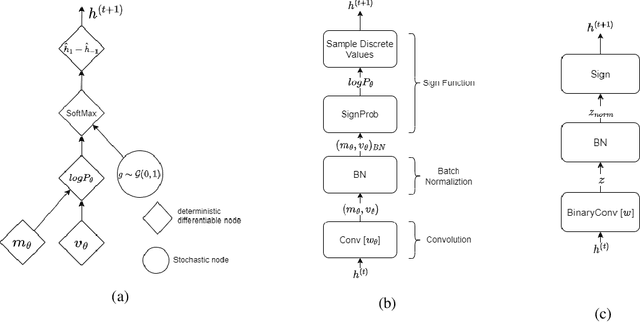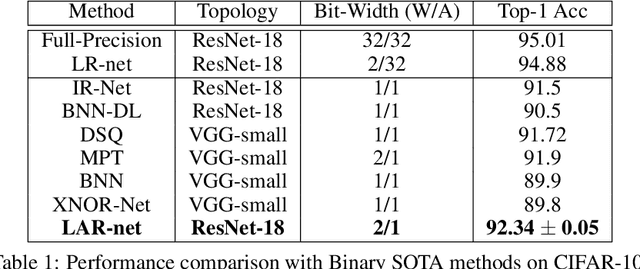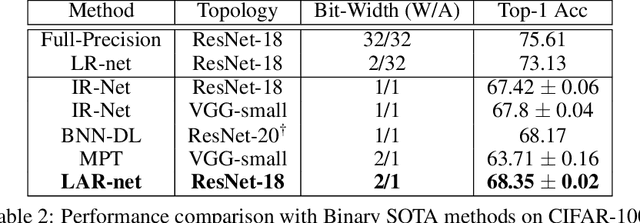Guy Berger
Learning Discrete Weights and Activations Using the Local Reparameterization Trick
Jul 04, 2023



Abstract:In computer vision and machine learning, a crucial challenge is to lower the computation and memory demands for neural network inference. A commonplace solution to address this challenge is through the use of binarization. By binarizing the network weights and activations, one can significantly reduce computational complexity by substituting the computationally expensive floating operations with faster bitwise operations. This leads to a more efficient neural network inference that can be deployed on low-resource devices. In this work, we extend previous approaches that trained networks with discrete weights using the local reparameterization trick to also allow for discrete activations. The original approach optimized a distribution over the discrete weights and uses the central limit theorem to approximate the pre-activation with a continuous Gaussian distribution. Here we show that the probabilistic modeling can also allow effective training of networks with discrete activation as well. This further reduces runtime and memory footprint at inference time with state-of-the-art results for networks with binary activations.
Gathering Strength, Gathering Storms: The One Hundred Year Study on Artificial Intelligence (AI100) 2021 Study Panel Report
Oct 27, 2022Abstract:In September 2021, the "One Hundred Year Study on Artificial Intelligence" project (AI100) issued the second report of its planned long-term periodic assessment of artificial intelligence (AI) and its impact on society. It was written by a panel of 17 study authors, each of whom is deeply rooted in AI research, chaired by Michael Littman of Brown University. The report, entitled "Gathering Strength, Gathering Storms," answers a set of 14 questions probing critical areas of AI development addressing the major risks and dangers of AI, its effects on society, its public perception and the future of the field. The report concludes that AI has made a major leap from the lab to people's lives in recent years, which increases the urgency to understand its potential negative effects. The questions were developed by the AI100 Standing Committee, chaired by Peter Stone of the University of Texas at Austin, consisting of a group of AI leaders with expertise in computer science, sociology, ethics, economics, and other disciplines.
 Add to Chrome
Add to Chrome Add to Firefox
Add to Firefox Add to Edge
Add to Edge